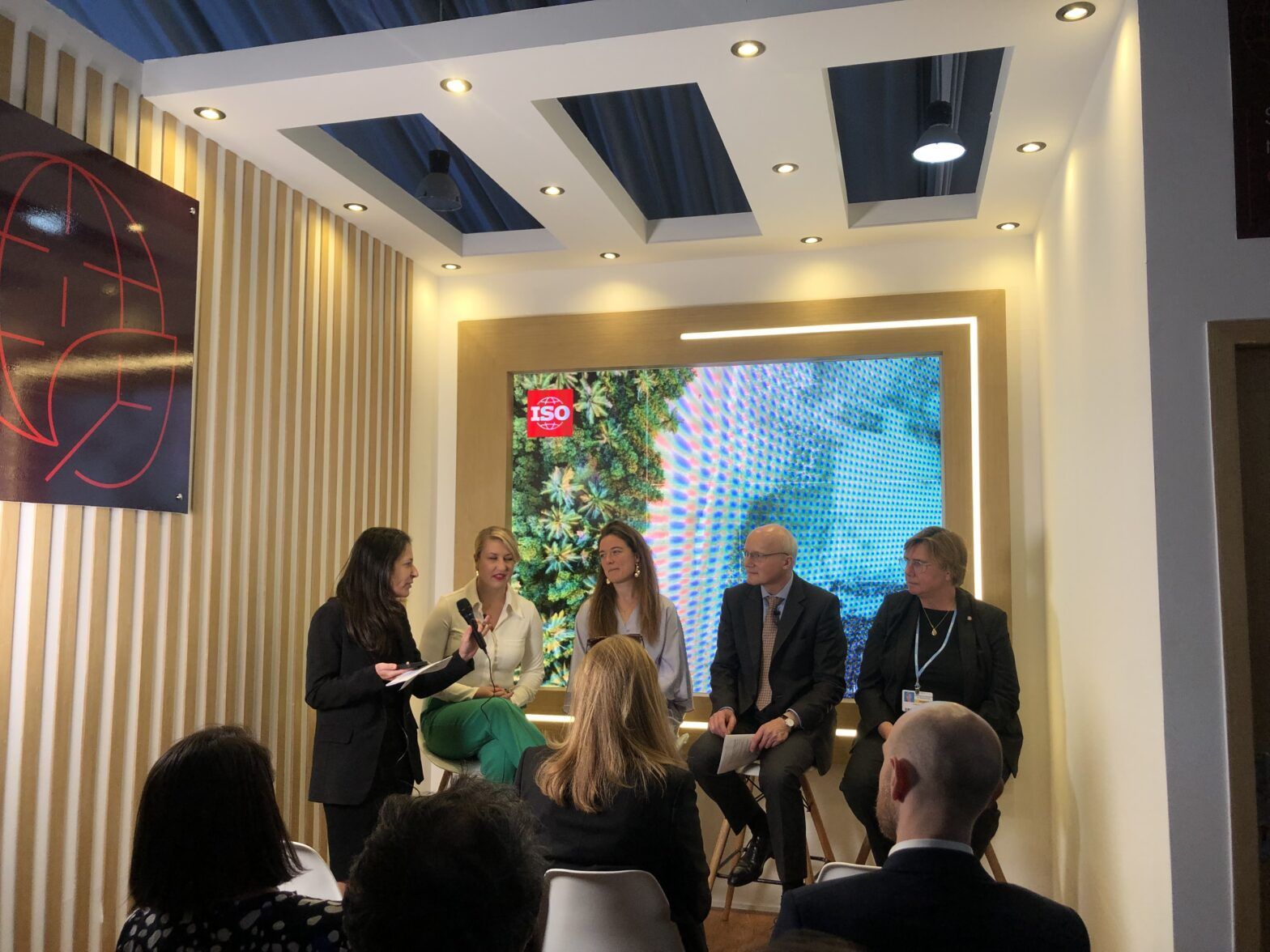The International Organization for Standardization (ISO) has today launched net-zero guidelines at COP27.
The guidelines serve as a reference for organisations to set net-zero targets, a panel said at the launch event.
“Almost all businesses know this is an issue, but the noise out there makes this difficult,” said Scott Steadman, CBE director, Standards at the BSI.
“[These guidelines] helps give clarity but also signpost the other good standards out there…[Businesses] can’t buy your way out – that’s really clearly set out in this.”
See also: – All ESG Clarity’s COP27 coverage
The ISO guidelines aim to create a common definition for net zero and related terms; set high-level principles for all participants who want to achieve climate neutrality; give actionable guidance; and provide transparent communication, credible claims and consistent reporting on emissions, reductions and removals.
The stated aim is to provide “guiding principles and recommendations to enable a common, global approach to achieving net-zero greenhouse gas emissions through alignment of voluntary initiatives and adoption of standards, policies and national and international regulation”.
The panel stressed the alignment with the UN expert group’s guidance issued earlier this week. Fiona Macklin, Race to Zero campaign coordinator, added while both guidelines provide clarity, “voluntarism isn’t enough”.
“The ISO net-zero guiding principles, which were brought together by Our 2050 World, a coalition of organisations [including ISO, the Race to Zero campaign and the UNFCCC’s Global Innovation Hub], is basically a baseline of what we expect to see from net-zero commitments and targets and plans,” Andrew Griffiths, director of community and partnerships at Planet Mark told ESG Clarity at COP27.
“And it really is going to help a huge amount with aligning all the array of different things that are out there.
“We’ve seen the UK net-zero carbon building standard is now being worked on over the next year. We’ve seen announcements that a specific framework for net zero for small- and medium-sized businesses is being developed with the Banking Alliance for Net Zero and rewired.earth.
“So there’s a lot of momentum starting to build around action-oriented frameworks that will help make a difference and drive meaningful change.”








